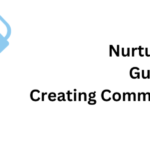7 Attributes of Enduring Family Businesses
There are c. 200,000 family owned businesses in Ireland.
Recently I was contacted with a query on support for family businesses, and it led me to think about the many family owned companies we work with in Celtar. The high proportion of our family business clients is not surprising.
Family owned and managed businesses have their own unique characteristics, a shared history and experience, loyalty and deep commitment.
In any SWOT Analysis there will be recognition of specific Strengths associated with a family enterprise. In the next column these self same Strengths can also be identified as Weaknesses.
As specialist SME advisers we have worked with first, second and third generation family owned businesses. These include business services firms, specialist contractors, distributors, a private hospital, manufacturers, tour operators, a materials handling company and many more.
Consulting firm McKinsey produced a paper called “The Five Attributes of Enduring Family Businesses” in 2010 (I have added two more attributes). They noted that one-third of the companies in the S&P 500 and 40% of the 250 largest companies in France and Germany were family businesses. Of course the term “family business” does not necessarily mean “small business.” While many of the conclusions McKinsey drew were applicable only to the largest multi-generation companies, there are lessons that apply to family businesses of all sizes and types. In this blog, I’ll describe McKinsey’s key success attributes along with some comments from our experience in Celtar.
1. Governance and business growth
“As family businesses expand from their entrepreneurial beginnings, they face unique performance and governance challenges. The generations that follow the founder, for example, may insist on running the company even though they’re not suited for the job. And as the number of family shareholders increases exponentially generation by generation, with few actually working in the business, the commitment to carry on as owners can’t be taken for granted. Indeed, less than 30% of family businesses survive into the 3rd generation of family ownership.
“To be successful as both the company and the family grow, a family business must meet two intertwined challenges: achieving strong business performance and keeping the family committed to and capable of carrying on as the owner.”
The number of family members owning or working in the business should not, in fact, increase “exponentially generation to generation.” Inevitably there will be conflict about future direction of the company if there are too many family shareholders. From experience some may look to sell up and asset strip the business, others will take a longer view and wish the company to continue growing, and trading whilst maintaining family ownership.
2. Recognising the need for external talent
“Family businesses can go under for many reasons, including family conflicts over money, nepotism leading to poor management, and infighting over the succession from one generation to the next. Regulating the family’s roles as shareholders, board members, and managers is essential because it can help avoid these pitfalls. Large family businesses that survive for many generations make sure to permeate their ethos of ownership with a strong sense of purpose…….long term survivors usually share a meritocratic approach to management.”
For business survival and growth, family members must accept that the best people to manage the business are not necessarily members of the family.
3. Raising capital, effects on ownership
“Maintaining family control or influence while raising fresh capital for the business and satisfying the family’s cash needs is an equation that must be addressed since it’s a major source of potential conflict, particularly in the transition of power from one generation to the next. Enduring family businesses hold family councils and regulate ownership issues – for example, how shares can (and cannot) be traded inside and outside the family – through carefully designed shareholder agreements. Raising capital from Venture Capital firms will dilute family ownership and lessen family control.
4. The struggle for talent
“Family businesses, like their non-family peers, face the challenge of attracting and retaining high class talent to key management positions. In this respect they have a handicap because non-family executives might fear that family members make important decisions informally (over meals in the family kitchen?) and that a glass ceiling limits the career opportunities of outsiders.”
Family businesses do have a problem retaining and attracting talented managers. Non-family executives fear that their contributions are not recognised, and that they are “out-of-the-conversation” when important decisions are taken.
5. Too risk averse?
“Too much prudence can be dangerous. Family owners, who usually have a significant part of their wealth associated with the business, face the challenge of preventing an excessive aversion to risk from influencing company decisions. Excessive risk aversion might, for example, unduly limit investments to maintain and build competitive advantage and diversify the family’s wealth.”
Many Irish family businesses will have invested in our property boom/bubble, so in fact more prudence should have been employed.
6. Develop your own talent – succession planning
Working in the family business has become a more attractive option for many sons and daughters, as the recession hinders career development and limits job opportunities.
We advise that the family members work elsewhere, possibly the UK, before they join the family business. Away from the family enterprise they learn professional management skills and different approaches – and thus bring new ideas and outside experience to the family firm when they join 4 or 5 years later.
7. Values of family businesses can be different
A fair share of family owned businesses offer a higher then average commitment and loyalty to staff. I have observed business owners of small companies taking hits in their pockets instead of taking the option to make staff redundant. Larger companies can appear heartless in making redundancies when their sales fall and profits decline. Small family owned businesses are often different. This difference is based on close relationships with individuals built up over years and of working together to serve customers.
In conclusion
The keys to long-term success for a family business are professional management gained from harnessing the experience of outsiders, and keeping the family committed to the responsibilities of ownership.
See the original McKinsey article at
http://www.mckinsey.com/insights/organization/the_five_attributes_of_enduring_family_businesses
Another article, “The 5 attributes of enduring family businesses”, can be read HERE.
To discuss how the issues in this article affect your family business you are welcome to contact me at [email protected]
Other resources
http://www.deloitte.com/ie/succession-planning
Deloittes Ireland ‘Planning for family business succession’
http://download.pwc.com/ie/pubs/2012_family_business_survey_findings_for_ireland.pdf
Family business survey 2012 from PWC Ireland
http://www.enterprise-ireland.com/en/Events/OurEvents/Family-Business-Conference-21-May-2013
Enterprise Ireland are hosting a “Family Business Conference” on the 21st of May 2013, in Dublin
http://www.enterprise-ireland.com/en/Events/OurEvents/Family-Business-Conference-21-May-2013/
There used to be a family business centre in UCC, www.ucc.ie , but I can’t find any recent links to it.
And there is a new family business initiative from Plato in Cork which I am researching.
Billy Linehan, Celtar, family business advisers Dublin


